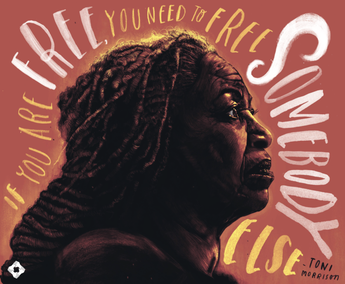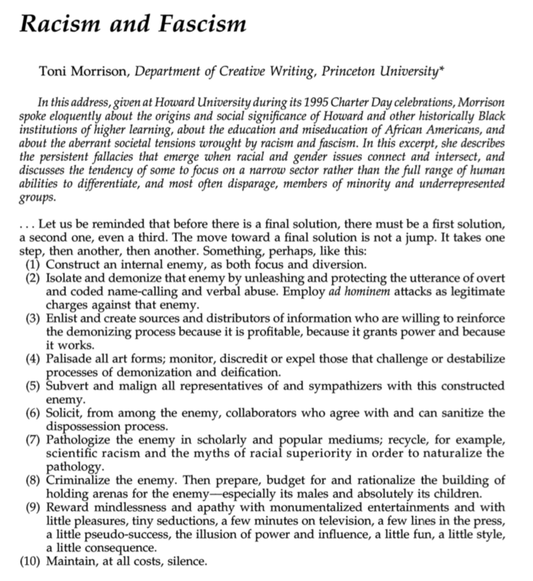|
Original Post - Click Here Written by: Christopher Rodgers “I only debate my equals, all others I teach.” — John Henrik Clarke. Offered on behalf of the National Steering Committee for Black Lives Matter At School. As PK-12 schools and universities across the nation are entering the school year, Black Lives Matter at School has taken the origins of our movement from a Day of Action, to a Week of Action, to a Year of Purpose — this, all behind the backdrop of youth-led global uprisings in the name of the Movement for Black Lives. We stand in our purpose. We believe wholeheartedly in our mission. As Assata Shakur teaches us, we know we have nothing to lose but our chains. We are witnessing language, organizing practices, and organizational principles that abolitionists and anti-racist organizers have relied upon for several decades entering the mainstream discourse for today’s movements, catalyzing a bold new generation of activism. This heightened awareness of the work has attracted the likes of the President and other white-supremacist mouthpieces to rehash strategies that criminalize the teaching of histories and perspectives that enliven the struggle for a beloved community and a just world order. This is not simply a matter of public school curriculum policy, but rather widely emblematic of how movements against free speech have their origins in stabilizing white violence in the public sphere. We know these recent pronouncements are not without precedent (Thank you as always, Zinn Education Project!) and it has drawn us to deeply reflect on a long history of state-sanctioned repression of freedom movements, both domestic and foreign, that the United States has used to maintain what bell hooks terms as imperialist white supremacist capitalist patriarchy. Conceptual frameworks like critical race theory (CRT), curated syllabi/resource guides like the BLM@School Curriculum Resource Guide, and critical historical analysis like the 1619 Project are indispensable to providing foundations for principled struggle, abolitionist visions, and radical imagination. We are watching right before our very eyes the ways in which white supremacy is gasping for its very life, exposing what many have always known as its hydra-like tentacles constraining life across education, healthcare, economic policy and the environment. The rising tide of fascism is striving to reinforce the death-dealing practices that generations of activists have persistently resisted. It’s critical we recognize the radical possibility emerging from Black-led grassroots struggle that, and this must be understood, both of our national-level political parties are attempting to foreclose. We hold on to the power of the vote to challenge fascist consolidation, while also recognizing that our toolbox for liberation requires we must reach beyond electoral politics toward a much more expansive horizon of struggle. As Awo Okaikor Aryee-Price has named for us, we must move through this year of purpose into a lifetime of practice. We challenge you all to articulate what means for your professional and, more importantly, personal transformation. This is what the YEAR OF PURPOSE is here to provide support for you and your communities to do. To close this letter on recommitting to our mission and in the spirit of providing a platform for teaching, we turn to our ancestor Toni Morrison to support our analysis. We are excited about February where after the Week of Action (Feb 1–5), we shall celebrate the first annual Morrison/Lorde Day (February 18th) in our communities. We encourage educators and all those who work for a world where Black Lives Matter to share this with youth and families as well. It is concise, yet teeming with clarity; undeniably a lesson worth teaching for our times. WATCH: User Clip: Toni Morrison - Racism and Fascism Clip Of Howard University 128th Anniversary This clip, title, and description were not created by C-SPAN. User-Created… www.c-span.org Here’s the link to the excerpted speech in the Journal of Negro Education.
Morrison, T. (1995). Racism and fascism. Journal of Negro Education, 64(3). Morrison, T. (1995). Racism and fascism. Journal of Negro Education, 64(3).
0 Comments
Your comment will be posted after it is approved.
Leave a Reply. |
Get monthly updates. Subscribe to our
|



 RSS Feed
RSS Feed